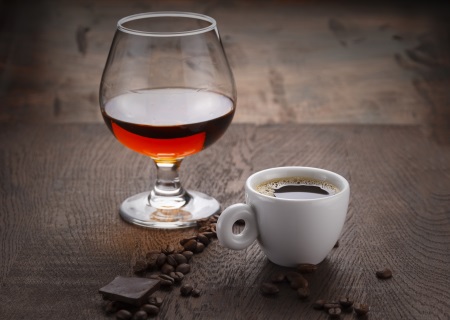
One study will say that coffee is good for you and then another will say it’s bad for you. Ditto with wine and many other things. So which is it: are these things good for you or bad for you?
Probably neither. That is, these things that are endlessly studied with contradictory conclusions must not have much of an effect, positive or negative, or else studies would be more definitive.
John Ioannidis puts this well in his recent interview on EconTalk:
John Ioannidis: … We have performed hundreds of thousands of studies trying to look whether single nutrients are associated with specific types of disease outcomes. And, you know, you see all these thousands of studies about coffee, and tea, and all kind of —
Russ Roberts: broccoli, red meat, wine, …
John Ioannidis: — things that you eat. And they are all over the place, and they are always in the news. And I think it is a complete waste. We should just decide that we are talking about very small effects. The noise is many orders of magnitude more than the signal. If there is a signal. Maybe there is no signal at all. So, why are we keep doing this? We should just pause, and abandon this type of design for this type of question.

Kudos to Ioannidis. I think a lot of scientists and other experts are highly skeptical of large swaths of “science” these days, but are afraid to stick their necks out. Silly nutritional studies are one thing, but think about how long we went on believing the consensus on cholesterol, or salt. John knows I want to mention global warming here, too—but I won’t. ㋡
“Science” is a very broad term. There’s no replication crisis in chemistry, for example. Some fields produce a lot more false results than others.
I think the issue is in the reporting – all scientific papers will say “we find in our sample xyz” – that is the point of publishing the paper. What reporters are very bad at doing is assessing how each paper *adds to* the body of scientific knowledge. Most (probably all) studies based on live subjects are too small with respect to the human population to expect repeatability to hold 100% of the time, so people should expect some apparently contradictory evidence – it is evidence after all, not proof.
I have a theory that the scientific “priesthood” contains a number of ascetics who think any pleasure is sinful. Their studies always show harm from coffee, wine, chocolate etc.
Epicureans read those studies then rush to refute them and the pendulum swings.
The important thing when it comes to nutritional vices is to keep things in balance. For example, if you drink three cups of coffee during the day, make sure you have three glasses of wine that evening.
Let’s not confuse what a newspaper article claims to what a scientific article claims. If you look into the recommendations of the nutritional and medical societies you’ll see they are based on meta data from large sample, double blind trials. These recommendations are usually very conservative and agreed upon by broad concensus among experts.
Sadly, mainstream science is still desperately clinging on to the reductionist mindset – it’s difficult to refute the apparent power offered by direct cause/effect, evidence-based investigation, with its tendency to ask binary questions of this type. It’s like trying to fit the square peg in a round hole, and when you don’t get the answer you want, you say you need more data!
Alas, there *is* a shift in some circles towards the more holistic, connectionist mindset that allows us to consider indirect causal links; whilst the butterfly in brazil doesn’t *directly* cause the storm in the UK, there *are* indirect causal links.
Why does western thought have so much difficulty in letting go of it’s reductionist mindset?? Because pedestals would be brought down, indeed “scientists” have too much to lose, so they continue pedalling out this garbage. Too many egos would be damaged & paypackets lost. Thankfully Ioannidis has the gumption to stand up to it.
All while the connectionists get mocked as “new age” or “unscientific” by the very people who cling to their evidence-based dogma. It’s no different to religion – my religion is better than yours, you’re wrong!
@Miguel: I agree that science is more nuanced than science reporting, but I think you may be overstating the amount of consensus regarding nutrition. Also, Ioannidis explains why meta analysis is not as reliable as it’s often thought to be.
Anyone who believes nutritional advice is based on solid science must not have reviewed the evidence at all. Like how the decades-long crusade against saturated fat was based on almost no evidence.
Update: https://www.cnbc.com/2018/07/03/drinking-coffee-could-help-you-live-longer-study-says.html